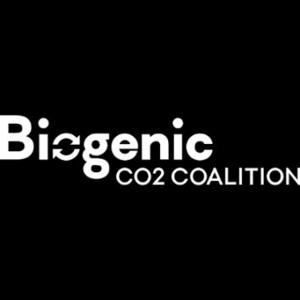NGFA, NFU, and HIA join Biogenic CO2 Coalition

June 29, 2020
BY Biogenic CO2 Coalition
The broad and bipartisan effort to press the U.S. EPA to address a major roadblock to the U.S. bioeconomy and help create thousands of new jobs grew stronger this week as three additional national organizations added their voices to this effort. The Biogenic CO2 Coalition today welcomed the National Grain and Feed Association, National Farmers Union, and Hemp Industries Association to its growing coalition.
The Biogenic CO2 Coalition is a group of leading agricultural organizations fighting for the fair, science-based treatment of annual farm crops by EPA in order to grow the American bioeconomy, create jobs, and boost investment in rural America. With the agency expected to advance a rulemaking addressing biogenic CO2 emissions from woody biomass, the Coalition has recently called on EPA to solicit public comment on regulation of biogenic CO2 emissions from annual crops, potentially creating a window of opportunity for rulemaking to address this decade-old regulatory glitch. This request is in line with bipartisan support in Congress and numerous scientific studies, including a recent letter signed by more than 20 top scientists, confirming that it does not contribute to excess greenhouse gases in the atmosphere.
Advertisement
Advertisement
“We are thrilled to welcome NGFA, NFU, and HIA to our growing grassroots effort in the fight to ensure rural America gets the boost it desperately needs in terms of investment, job creation, and increased opportunity to compete in the international marketplace for renewable products. This demonstrates a broad array of growing concern and support for the EPA to act on a rulemaking to address this decade-long regulatory glitch,” stated John Bode, president &and CEO of the Corn Refiners Association. “It’s time the EPA acts to get this rulemaking issued swiftly; rural America cannot wait any longer.”
"As family farmers endure a great deal of economic uncertainty, biobased products present a unique opportunity to develop new markets and diversify revenue streams,” said Rob Larew, president, NFU. “Unfortunately, there are currently misguided barriers in place that prevent the expansion of the bioeconomy; in joining the Biogenic C02 Coalition, National Farmers Union is committed to clearing these hurdles and ensuring the long-term financial success of American farmers and ranchers."
“The United States is falling behind the world in supporting the bioeconomy from agricultural crops. In conjunction with our farming partners across the country, the Hemp Industries Association is excited to join the Biogenic CO2 Coalition, and move the conversation forward to allow hemp farmers, growing for fiber, cannabinoids or grain, access to the $459 billion dollar bioeconomy. The time is now to embrace change that provides additional revenue for rural America, and steps towards energy independence as a nation.” – Rick Trojan, president, HIA.
Advertisement
Advertisement
As the Coalition noted in a recently released digital video ad, U.S. Sen. Joni Ernst, R-Iowa, observed in a recent Senate hearing that the COVID-19 pandemic has resulted in countless “jobs lost and lives upended across Iowa and throughout rural America.” Along with growing support from various agricultural organizations, members of Congress, governors, and scientists have also called on EPA to issue rulemaking to clarify the de minimis character of biogenic carbon emissions from the processing of annual agricultural crops.
Related Stories
U.S. fuel ethanol capacity fell slightly in April, while biodiesel and renewable diesel capacity held steady, according to data released by the U.S. EIA on June 30. Feedstock consumption was down when compared to the previous month.
XCF Global Inc. on July 8 provided a production update on its flagship New Rise Reno facility, underscoring that the plant has successfully produced SAF, renewable diesel, and renewable naphtha during its initial ramp-up.
The U.S. EPA on July 8 hosted virtual public hearing to gather input on the agency’s recently released proposed rule to set 2026 and 2027 RFS RVOs. Members of the biofuel industry were among those to offer testimony during the event.
The USDA’s Risk Management Agency is implementing multiple changes to the Camelina pilot insurance program for the 2026 and succeeding crop years. The changes will expand coverage options and provide greater flexibility for producers.
EcoCeres Inc. has signed a multi-year agreement to supply British Airways with sustainable aviation fuel (SAF). The fuel will be produced from 100% waste-based biomass feedstock, such as used cooking oil (UCO).
Upcoming Events










